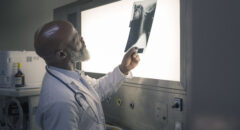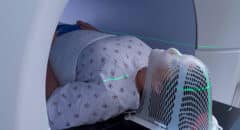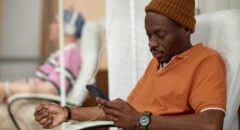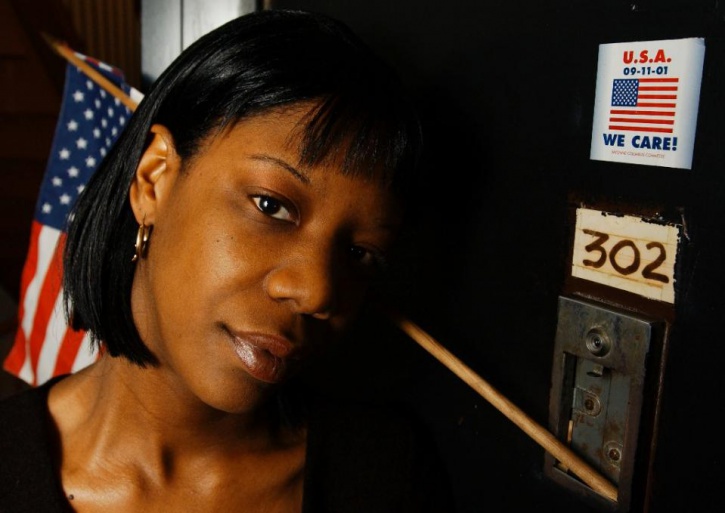
After the tragic attacks on the World Trade Center on September 11, 2001, Marcy Borders rose from the ashes and lived to tell about it.
Photographed covered head to toe in white debris, the woman the world came to know as 'The Dust Lady' in the haunting photo passed away in 2015 from stomach cancer. Borders was only 42.
Because her image left an indelible impression on the world, it is fitting that she is remembered every year on this solemn occasion.
Noelle Borders, Marcy's daughter, told CNN in a phone interview that her mother had been battling stomach cancer since last year. "My mom fought enemies in battle and I just loved her so much," Noelle Borders told CNN. "She will always live through me."
Other family member expressed their grief on social media. "I can't believe my sister is gone," Michael Borders, her brother, posted to Facebook.
Stomach (gastric) cancer is a rare form of cancer, ranking as the 16th most common cancer in the U.S., according to the National Cancer Institute.
Rates of stomach cancer are higher in African Americans (and Hispanics) than in non-Hispanic whites.
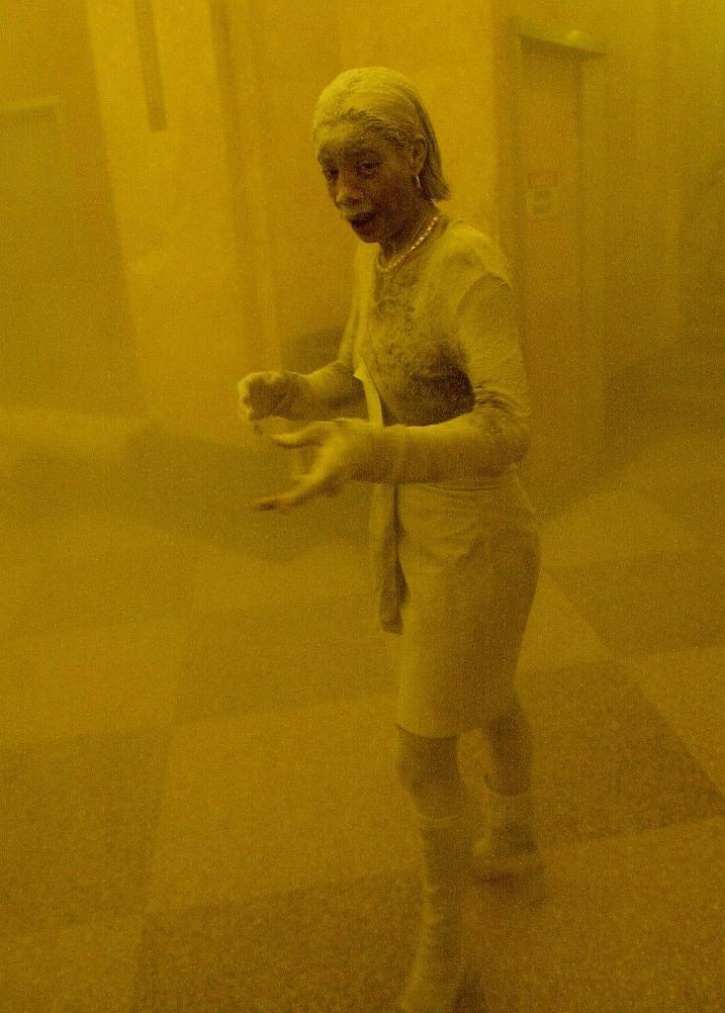
Although there is not a standard or routine screening test for stomach cancer, the American Cancer Society lists the following as common risk factors:
-
Gender:
Stomach cancer is more common in men than in women.
-
Age:
Risk increases with age.
-
Ethnicity:
In the United States, stomach cancer is more common in Hispanic Americans, African Americans, and Asian Pacific Islanders than it is in non-Hispanic whites.
-
Where a person lives:
Worldwide, stomach cancer is more common in Japan, China, Southern and Eastern Europe, and South and Central America. This disease is less common in Northern and Western Africa, South Central Asia, and North America.
-
Diet:
An increased risk of stomach cancer is seen in people with diets high in smoked foods, salted fish and meats, and pickled vegetables. The risk of stomach cancer seems to be lowered by eating lots of fresh fruits and vegetables.
-
Tobacco use
-
Being overweight or obese
-
Earlier stomach surgery:
People who have had part of their stomach removed to treat other problems like ulcers have a higher risk of stomach cancer.
-
Menetrier disease:
A rare disease that involves changes in the stomach lining
-
Type A blood
-
Certain inherited cancer syndromes
-
Family history:
People with close family members (parents, siblings, and children) who have had stomach cancer are more likely to get this disease.
-
A type of stomach polyp:
This is called adenomatous or adenoma sometimes change into stomach cancer.
-
Certain types of work:
Workers in the coal, metal, and rubber industries seem to have a higher risk of getting stomach cancer.
-
Common variable immunodeficiency:
This is a condition where the immune system can’t make enough antibodies in response to germs.
In a CDC report titled, Scientific and Medical Evidence Related to Cancer for the World Trade Center Health Program, findings showed that the collapse of the towers exposed people (workers, general workers, etc) to known chemical carcinogens.
Borders suggested in interviews that the exposure to chemicals from the collapse played a role in her subsequent stomach cancer diagnosis.
Heartbreakingly (and understandably), Borders suffered mental and emotional trauma following 9/11, isolated alone at home.
Borders, who worked for Bank of America at the time of the attack, lost her job and battled "decade-long deep depression and drug abuse, though she eventually recovered," wrote a recent a Yahoo! News article.
In a March 2012 interview with AFP, Borders said, "I still live in fear.
I can't think about being there, in those targets, the bridges, the tunnels, the (subway) stations."
"The father of my daughter took her; I can't take care of myself, so I can't take care of her."
She was not made aware of free mental health services and aid available to survivors.
New York City Mayor Bill de Blasio tweeted his condolences Tuesday night: "Marcy Borders' passing is a difficult reminder of the tragedy our city suffered nearly 14 years ago. NYC holds her loved ones in our hearts."





